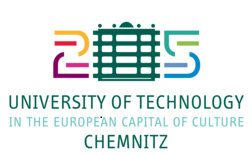Responsibilities of Authors
Originality and Accuracy
Authors of original research must present an accurate account of the work performed and its results, followed by an objective discussion of the significance of the work. The manuscript should contain sufficient detail and references to permit others to replicate the work. Fraudulent or knowingly inaccurate statements, such as fabricating data or falsifying results, constitute unethical behavior and are unacceptable. Review articles should be accurate, objective, and comprehensive, while editorial "opinion" or perspective pieces should be clearly identified as such.
Data Sharing and Accessibility
Authors are required to provide the raw data of their study alongside the manuscript for editorial review if requested. They should also be prepared to make the data publicly available, unless restricted by ethical, legal, or privacy concerns. Authors must ensure that such data remains accessible to other competent professionals for at least three years after publication, preferably via an institutional or subject-based data repository, provided that the confidentiality of participants is protected and legal rights concerning proprietary data do not preclude their release.
Plagiarism and Proper Citation
Authors must ensure that they submit entirely original works. If the work or words of others are used, they must be appropriately cited. Publications that have significantly influenced the reported work should also be cited. Plagiarism in all its forms—including "passing off" another’s paper as the author’s own, copying or paraphrasing substantial parts of another’s paper without attribution, claiming results from research conducted by others, or self-plagiarism (reusing significant portions of one’s own previously published work without proper citation)—constitutes unethical publishing behavior and is unacceptable. Authors are expected to adhere to the COPE Guidelines on Plagiarism.
Multiple Submissions and Duplicate Publication
Authors should not submit a manuscript that has already been published in another journal or primary publication. Submitting a manuscript concurrently to more than one journal is unethical and unacceptable. Papers describing essentially the same research should not be published in multiple journals. Authors are expected to comply with the COPE Guidelines on Duplicate Publication.
Use of Confidential Information
Information obtained privately, such as through conversation, correspondence, or discussion with third parties, must not be used or reported without explicit, written permission from the source. Similarly, information obtained during confidential services, such as refereeing manuscripts or reviewing grant applications, must not be used without the explicit written permission of the author(s) of the work involved in those services.
Error Correction and Retraction
When authors discover significant errors or inaccuracies in their published work, such as incorrect data analysis or misinterpretation of results, they are obligated to promptly notify the journal’s editors or publisher. Authors must cooperate with the editors to either correct the paper through an erratum or retract the paper in accordance with the journal’s Retraction Policy. If the editors or publisher learn from a third party that a published work contains a significant error, the authors must promptly correct or retract the paper or provide evidence to the editors to confirm the accuracy of the original paper.
Conflict of Interest
Authors must disclose any financial or other substantive conflicts of interest that might have influenced the presented results or their interpretation. This includes funding sources, affiliations, or personal relationships that could be perceived as affecting the objectivity of the research.
Adherence to Editorial Policies
By submitting a manuscript, authors agree to abide by the Publication Policies of the Journal of Research in Social Sciences and Language (JSSAL).
For more details, see our Publication Policy.











